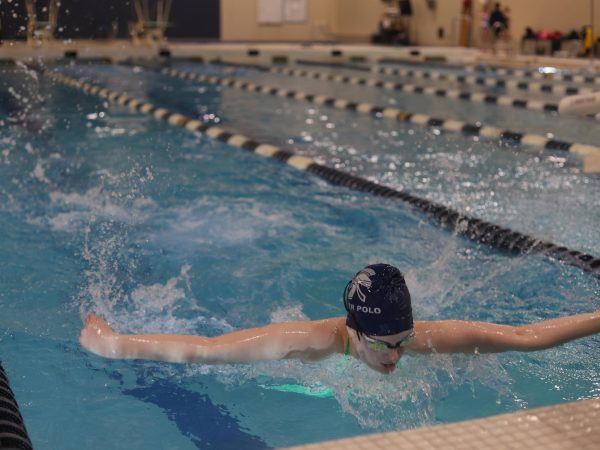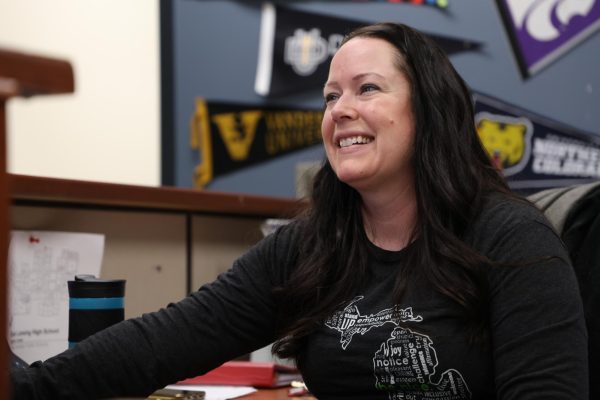Passions Outside the Box
Wilson Talent Center offers alternatives to traditional school for interested students
When Carmen Kwasnik (11) first started attending classes at the Wilson Talent Center, it was the sense of a common goal among her peers that really drew her in.
Kwasnik first started attending classes at the talent center at the beginning of the 2021-2022 school year for the manicuring course. The Wilson Talent Center has been partnered with various local school districts for years, allowing students to spend a part of their day at the center taking courses for various skills.
It provides the opportunity for students to discover passions outside of the typical school day, introducing them to classes such as coding, electrical work, nursing and medical skills.
“Class sizes are always small, so you become really close to that when you’re working, and the nice thing is that everybody is working towards the same goal,” Kwasnik said. “You’re there because you choose to be. And it’s kind of a shared, like, community because of that.”
Not only do the programs open up countless alternatives to four year college, but they open up opportunities for students to continue working higher paid jobs while attending college. Kwasnik may work towards being a nail technician this summer or the next after taking a certification test.
“If I want to then go to a four year college or do something else I can, you know, start making money from an actual trade, which would be more than like a minimum wage job,” Kwasnik said.
Many classes allow students to receive college credit or begin working towards certification in various fields, but courses in everything from nursing to coding actually make it possible for students to fully gain their licenses at the end of the class, a possibility within Kwasnik’s manicuring class once a final exam is passed.
“It’s really pushing kids into high paying jobs, like immediate employment right after high school, if not immediate employment, short employment following some education,” Jeff Barrons, the counselor connected to the talent center, said. “I have students who earned up to 20 college credits by going to Wilson.”
Brandon Morehouse (12) had previously attended the Wilson Talent center for Computer Programming, and this year attended the New Media Class.
“They’re both challenging,” Morehouse said. “You definitely want to have your head in the game. You don’t want to just take it for the Easy Grade.”
In the fall of each school year, sophomores gather for an assembly to get an idea of their enrollment options at the talent center so that they can begin signing up for courses to attend their junior and senior years. There is also a bus that is provided for students in need of transportation.
It isn’t only those attending the talent center that plan on going into a trade after they graduate. Frank Bartlett (12) has hopes of pursuing a career as an electrician when he graduates.
“I just didn’t like the idea of going to college and having to pay for it, and just being in debt,” Bartlett said. “It was just not up my alley at all. So if I did go to do a trade, even if I did go into debt, it wasn’t gonna be a lot, and wherever I end up being is going to pay enough to counteract that.”
Bartlett also has hopes of one day being able to wire his own home. He wants to get into his career as soon as possible.
A lot of students feel that they’re pushed towards a four year college as their only option. Yet as COVID-19 subsides and more trade oriented options open up for students, many teachers and counselors like Barrons hope to see students finding careers that they’re passionate about. Trade-based courses introduce students to a completely different learning environment from what they’re used to.
“I definitely think I like the classroom environment of smaller classes,” Kwasnik said. “And I’m leaning more towards going to another trade school or something where people are there for a reason and they know what they’re doing.”
Barrons encourages students to pursue what they find interesting, including what may fall outside the bounds of a typical education.
“It’s really for any student who has an interest in one of those areas, they can still gain experience and get a feel for it if it’s something they want to do,” Barrons said. “And it’s still not having any limitation with their diploma because they’re still getting a diploma.”

Willa Cornillie is a member of the Class of 2023 and is one of the Co Editors-in-Chief for Portrait. She has been on staff since her freshman year during...







